California Members of Congress Seek to Eviscerate State Water & Environmental Laws
H.R. 23 Would Preempt California State Water Law & Supersede Federal, State Environmental Statutes
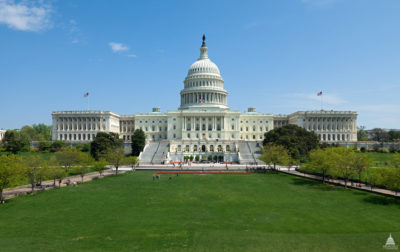 Quite understandably, the attention of the media, environmental organizations and the general public has been focused on the myriad misadventures of the Trump Administration, now rumbling and stumbling through its fifth month. And, as recounted on Legal Planet since mid-January, those contretemps include a great deal of environmental mischief emanating from the Executive Branch.
Quite understandably, the attention of the media, environmental organizations and the general public has been focused on the myriad misadventures of the Trump Administration, now rumbling and stumbling through its fifth month. And, as recounted on Legal Planet since mid-January, those contretemps include a great deal of environmental mischief emanating from the Executive Branch.
But it would be a mistake to focus just on (anti-) environmental policies being generated by the White House. The Republican-controlled Congress–and especially the House of Representatives–is more quietly developing its own strategy to eviscerate environmental laws and supersede longstanding state prerogatives.
Exhibit A is H.R. 23.
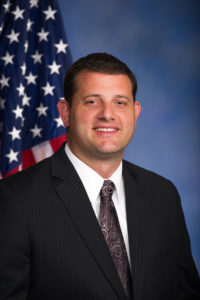
H.R. 23, co-sponsored by a group of California San Joaquin Valley Republican members of Congress led by David Valadao (R-Hanford), is formally titled the “Gaining Responsibility on Water Act of 2017.” 125 pages in length, the bill seeks to make numerous changes to the way the federally-constructed and administered Central Valley Project (CVP) operates to deliver water throughout California’s Central Valley. It’s a most depressing read.
Perhaps the most pernicious provision of H.R. 23 is section 108, which deals with the operation of both the CVP and the State of California-operated State Water Project (SWP). Section 108 represents a radical rejection of longstanding deference to state water law in the building and operation of federal water projects such as the CVP. And it brazenly exempts the operation of both the CVP and SWP projects from the federal Endangered Species Act “or any other law” pertaining to those operations. Section 108 goes on to bar both federal and California state agencies from imposing on any state-issued water right “any condition that restricts the exercise of that water right in order to conserve, enhance, recover or otherwise protect any species that is affected by operations of the [CVP or SWP].”
But the most alarming language in this most extreme section of H.R. 23 is that which immediately follows the above-quoted provisions:
“Nor shall the State of California, including any agency or board of the State of California, restrict the exercise of any water right obtained pursuant to State law…in order to protect, enhance or restore under the Public Trust Doctrine any public trust value.”
Why is this bill language so radical? For over a century, since passage of the venerable Reclamation Act of 1902–which sparked construction of an extensive system of federal reclamation projects that changed the face of the American West–Congress has been careful to include in all such legislation a guarantee that federal projects such as the CVP will be operated in full conformance with state water law. Section 108 of H.R. 23 would prevent state water regulators from imposing any restriction on CVP or SWP project water deliveries that would protect environmental values. And it would expressly exempt those water projects (and those who obtain water from them) from application of the public trust doctrine, which has been a longstanding cornerstone of California environmental and water law.
H.R. 23 exposes the hypocrisy of House Republicans, who frequently advocate for states’ rights and, conversely, against increased federal authority. But principles of state sovereignty are baldly cast aside by the proponents of H.R. 23 when those principles protect environmental values that limit water deliveries to thirsty agricultural interests in California’s Central Valley. Such “one-way federalism” should be exposed for what it is–a cynical effort to degrade California’s environment in order to accommodate well-heeled water interests. Alarmingly, H.R. 23 turns its back on over a century of federal-state comity when it comes to the intersection of federal water projects and state water law principles.
The above-quoted preemption provisions are the worst aspect of H.R. 23, but the bill contains other pernicious features that are similarly worthy of note. For example, the bill also would effectively repeal a cornerstone feature of the Central Valley Improvement Act, landmark 1992 Congressional legislation that set aside 800,000 acre feet/year of San Joaquin River water to restore environmental values in California’s second-largest river system–one that federal CVP operations have devastated. H.R. 23 specifically requires that “water dedicated to fish and wildlife purposes by this title [be] replaced and provided to Central Valley Project water contractors…”
While Congressional Republicans increasingly appear to be the Gang That Can’t Shoot Straight, it’s certainly conceivable that the House of Representatives may eventually pass this abysmal bill. The focus would then turn to the U.S. Senate, where chances are better that such meat-axe legislation will falter and longstanding federalism principles may actually be respected.
On the other hand, if H.R. 23 is approved by both houses of Congress, there’s little doubt that President Trump would eagerly sign it into law. After all, this is the man who, during a 2016 campaign swing through California’s Central Valley, remarkably declared that the state’s five-year drought was a falsehood. (Alternative facts, indeed.) Given the chance, our President will be all too happy to sacrifice California’s environment in order to maximize water deliveries to the state’s water contractors. And if a trifle like 100+ years of federal deference to state water law stands in the way, too bad. The President, like the Congressional authors of H.R. 23, will be eager to Trump environmental and state water laws.
To quote a certain Chief Executive, sad.
Update: In July, the U.S. House of Representatives approved H.R. 23 on what was largely a party-line vote, 230-190, though most members of California’s Congressional delegation actually voted against the bill. H.R. 23 now moves to the U.S. Senate. Both of California’s U.S. Senators, Dianne Feinstein and Kamala Harris, have announced their opposition to the bill, as has California Governor Jerry Brown.
Reader Comments
3 Replies to “California Members of Congress Seek to Eviscerate State Water & Environmental Laws”
Comments are closed.




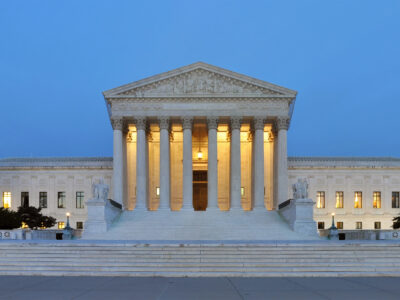
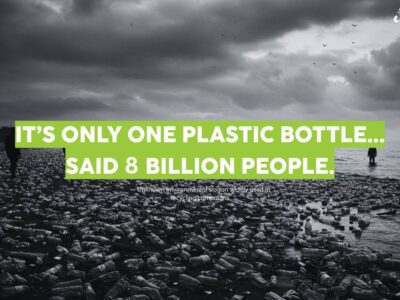
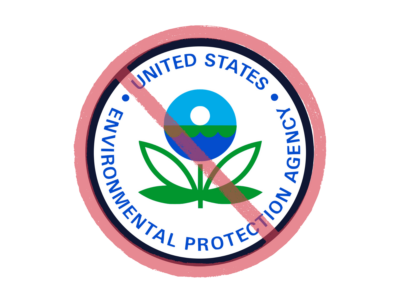
Valadao is a dairy man, with two operations in the Central Valley. He wants that water so he can go on continuing to grow livestock feed and producing dairy cows uncontested by anyone who cares about the fate of our planet. By the way, it takes a lot of water to produce some cow’s milk, and a lot of heat-trapping, climate-disrupting methane gets emitted into the air in the process….
The preemption provision appears to be unconstitutional. There are no express or implied powers that authorize Congress to prohibit a state from regulating water rights obtained under state law. To the contrary, Art. I, Sec. 8, Cl. 17 limits Congress’ express exclusive legislation to the District [of Columbia] and land purchased from the states “for the erection of forts, magazines, arsenals, dockyards, and other needful buildings”.
The Supremacy Clause of Art. VI further limits the supreme law of the land to the Constitution and laws of the United States “which shall be made in pursuance thereof.” As the Supreme Court held in McCulloch v. Maryland, “Congress, by the constitution, is invested with certain powers; and as to the objects, and within the scope of these powers, it is sovereign.” To the extent that Congress has implied powers, they are limited to “all usual and suitable means for the execution of the powers granted.”
Valadao is considered one of three vulnerable Republicans in California’s delegation flagged for extra help last spring by the National Republican Congressional Committee.
He is very likely one of those considered by the R establishment, as Devin Nunes was/is, that they can have fall on the sword.
What does it take for the population in that area of California to understand what it means to be beholden to well-heeled interests? Are there town halls?
Given your depth of knowledge in this space Richard, what would be the rallying points for those of us in alignment with the values of California’s environmental laws to take into those R communities? Thanks!